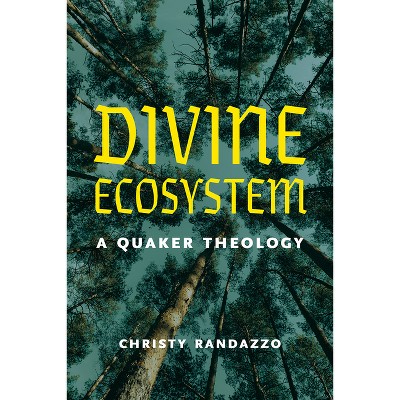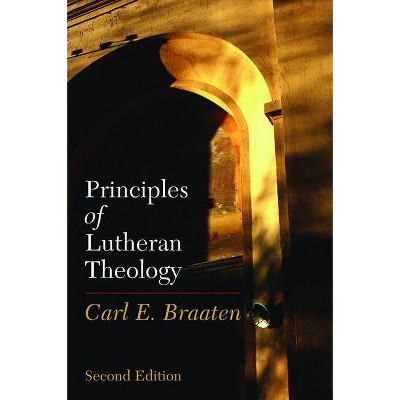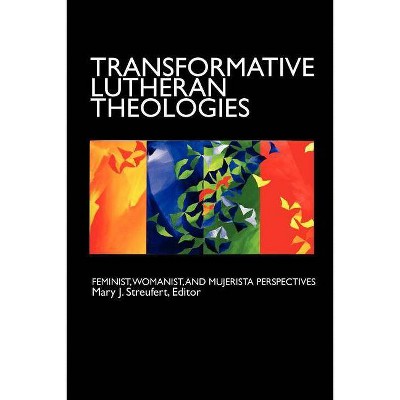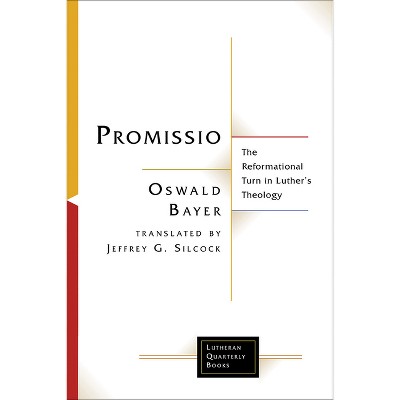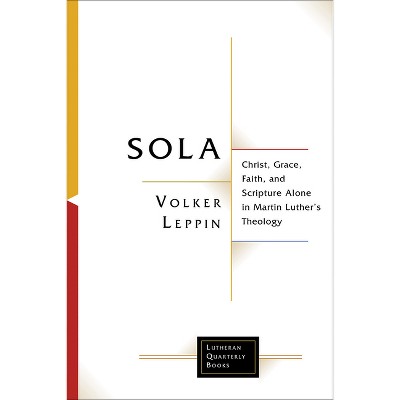Sponsored

That Divine and Most Excellent Gift - by Mark P Bangert (Paperback)
In Stock
Sponsored
About this item
Highlights
- This posthumous compilation of writing by beloved scholar, teacher, and musician Mark P. Bangert explores how, in addition to his other contributions, Martin Luther expressed a theological valuation of music that can inspire and inform today's understanding and use of music, especially in Christian worship.
- Author(s): Mark P Bangert
- 203 Pages
- Religion + Beliefs, Christianity
Description
About the Book
How is music a "divine and most excellent gift" of God, as Martin Luther called it in his preface to a 1538 music collection? This posthumous compilation of writing by scholar, teacher, and musician Mark P. Bangert explores Luther's theological views on music and how they might be both inspiration and model for believers today.Book Synopsis
This posthumous compilation of writing by beloved scholar, teacher, and musician Mark P. Bangert explores how, in addition to his other contributions, Martin Luther expressed a theological valuation of music that can inspire and inform today's understanding and use of music, especially in Christian worship. Luther's preface to Symphoniae iucundae ("Delightful Symphonies," 1538) presents the clearest explication of this theology. At the time of his death, Bangert had composed core components of a book on Luther's preface. Drawing on this work and other writings by Bangert on Luther and music, Martin Seltz has edited a collection that pays tribute both to Luther's theology and to Bangert's important body of scholarship.
Review Quotes
In this book, Mark Bangert's voice comes through so clearly. The fact that this volume was still in progress when he died allows the reader a window into his thinking while still at work. Here we see Mark's tenacity in exploring Luther as well as his familiarity with wide-ranging topics that provide new insights into Luther's intent and reveal intriguing possibilities for further research. In true Bangert form, the scholarship is well-founded, concise, and precise while also being set in a practical frame, always using Luther's question, "What does this mean?" Readers will find here a companion inviting them to explore more deeply how and why we preach, teach, and make music in the church, and what all this "singen und sagen" is about. --Kathryn Pohlmann Duffy, Iowa Preachers Project and Department of Music, Grand View University
I knew Mark Bangert as a teacher dedicated to helping his students discover the particular beauty of Lutheran worship prepared faithfully, thoughtfully, and musically. Within that framework, Mark's guide and conversation partner was always Martin Luther. Mark's last book is a dialogue between two old friends and a gift to the rest of us. --Donald P. Kreiss, bishop, Southeast Michigan Synod, ELCA
If church is an event and the gospel a spoken word, then we need to see that the event takes place in participatory music-making and that the word moves into our hearts in song. In an unfinished but brilliant and accessible essay, and in six eloquent supplementary articles, Mark Bangert gives us Luther on music, opening us to both event and song just as music can open us to the created world. Mark is too soon gone from us. But thanks to the gift of Kristi Bangert and the excellent editing of Martin Seltz, we hear him still in this book. --Gordon W. Lathrop, Schieren Professor Emeritus of Liturgy, United Lutheran Seminary, and author of The Assembly: A Spirituality (Fortress, 2022)
In Luther's generation and the one that followed, a basic question was a preoccupation: What is music? In the small Latin treatises on music used in schools, it was often the first question asked: Quid est musica? The answer in German is not one we would expect: Singekunst, the art of singing, that human element that expresses the inexpressible. This illuminating collection of essays by the late Mark Bangert is an intriguing exploration of this basic question. It begins with Luther but reflects our own day by the use of striking metaphors. A stimulating read! --Robin A. Leaver, author of Luther's Liturgical Music: Principles and Implications (Fortress, 2017) and editor of A New Song We Now Begin: Celebrating the Half Millennium of Lutheran Hymnals, 1524-2024 (Fortress, 2024)
After a lifetime of teaching, preaching, and musicking, Mark Bangert has gifted the church with a revealing and thought-provoking collection that will engage clergy, musicians, and laypeople with a rich examination of Martin Luther's theology of music. Much more than the oft-repeated (and erroneous) Luther quotes about "drinking songs" and letting "the devil have all the good tunes," Bangert develops a meaningful Luther-theology of music that will serve the church with wisdom and fresh perspective as it continues to engage the ever-evolving questions about the nature of the church's song. With his characteristic wit and insight, Bangert beckons us to marvel along with Luther at God's divine and most excellent gift of music. --Daniel E. Schwandt, cantor, Mount Olive Lutheran Church, Minneapolis






